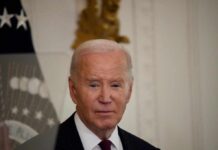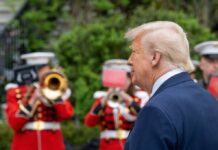
Nigeria has signed a groundbreaking arms production deal with China, turning away from traditional Western allies as Beijing expands its military influence across Africa.
At a Glance
- Nigeria and China have formalized a major agreement allowing Chinese state weapons manufacturer NORINCO to build ammunition factories in Nigerian territory
- The comprehensive deal includes production lines for multiple ammunition types, military hardware maintenance, battle tank servicing, and extensive technology transfers
- Nigeria’s pivot to China began during the Obama administration when U.S. military aid was restricted by the Leahy Laws prohibiting assistance to forces accused of human rights violations
- The agreement establishes manufacturing facilities in Kaduna State and incorporates advanced air defense systems including anti-drone technology
- This partnership represents China’s expanding military footprint in Africa, offering assistance without human rights or democratic governance conditions
A Strategic Military Partnership Forged in Pragmatism
Nigeria has formally cemented a substantial munitions production agreement with China North Industries Group Corporation (NORINCO), one of China’s largest state-owned arms manufacturers. This landmark deal represents a significant shift in Nigeria’s defense strategy and deepens the growing military relationship between Africa’s most populous nation and Beijing. The agreement follows years of frustration with Western military support restrictions and signals China’s expanding influence throughout the African defense sector amid growing security challenges on the continent.
The comprehensive agreement “covers the construction of ammunition production lines, maintenance and upgrades of military hardware, servicing of battle tanks and military engineering services,” as well as “technology transfers and training for Nigerian defense personnel.”
Building Domestic Arms Production Capacity
The partnership between NORINCO and Nigeria’s Defence Industries Corporation (DICON) will establish manufacturing workshops in Kaduna and Kachia in Nigeria’s Kaduna State. These facilities will produce multiple ammunition types including “7.62×51mm ball cartridges, 7.62×51mm blank cartridges, 9×19mm pistol cartridges, and machine gun ammunition.” This domestic production capability aims to reduce Nigeria’s dependence on imported munitions while creating a more sustainable supply chain for its military forces facing persistent security threats from groups like Boko Haram.
“China has significantly expanded its military presence and influence in Africa over the past two decades, and has recently signed a deal to establish a military hardware production facility in Nigeria, further strengthening its strategic ties with the continent.”, said Minister of State for Defence Bello Matawalle.
A high-level delegation from NORINCO visited Nigeria in March to finalize discussions on local arms production and technology transfers. The resulting Memorandum of Understanding provides Nigeria access to key military technologies that China has been increasingly willing to share with African partners. This represents a significant advantage over Western suppliers who typically impose stricter end-use restrictions and technology transfer limitations on defense equipment sales.
Advanced Air Defense Systems and Counter-Terrorism Support
Beyond ammunition production, NORINCO has committed to helping Nigeria upgrade its air defense systems, including radar infrastructure and anti-drone weapons. The company showcased advanced defense technologies like high-energy laser counter-drone systems and the Sky Dragon air defense platform during negotiations. These capabilities directly address Nigeria’s Military Total Radar Coverage (MTRACON) initiative and its ongoing battles with insurgent groups who increasingly employ drone technology for surveillance and attacks.
Nigeria’s shift toward Chinese military partnerships began during former President Muhammadu Buhari’s administration, who accused the United States of having “aided and abetted the Boko Haram terrorists in the prosecution of its extremist ideology and hate.” This frustration stemmed from U.S. restrictions under the Leahy Laws, which limit military assistance to foreign forces accused of human rights violations. China’s willingness to provide military aid without such conditions has made it an increasingly attractive partner to Nigeria and other African nations facing security challenges.
China’s Growing Military Influence in Africa
The Nigeria-China defense agreement falls under Beijing’s broader Peace Unity-2024 project, which focuses on enhancing African nations’ military capabilities through training, joint exercises, and defense equipment sharing. Chinese Foreign Minister Wang Yi recently pledged support for training African counter-terrorism troops during a visit to Nigeria. The countries have officially upgraded their relationship to a “comprehensive strategic partnership,” reflecting the deepening ties between Africa’s largest economy and the Asian superpower.
This agreement exemplifies China’s expanding role in Africa’s defense sector and its growing influence in regional security matters. By providing military assistance without democratic governance or human rights conditions, China continues to position itself as an alternative partner to Western nations across the continent. For Nigeria, facing persistent security threats from terrorist organizations and armed groups, the Chinese partnership offers a path to greater military self-reliance and enhanced homeland security capabilities.

























